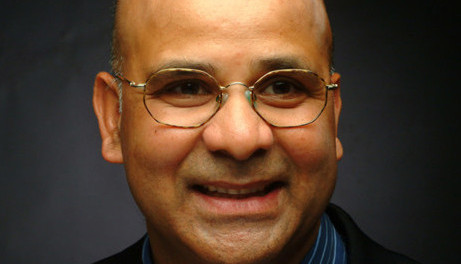Interview with Rahul Varma : Writing The Armenian Genocide
Montreal’s Teesri Duniya Theatre is presenting its offering directed by Liz Valdez and written by playwright Rahul Varma. The play is called State of Denial and it explores a very painful and often forgotten part of the history in the 20th century. An earlier workshop production of the piece was performed in 2012.
The play links the Turkish-denied Armenian genocide of 1915 with the 1995 genocide in Rwanda, connecting them through the Canadian diaspora experience. When Odette, a Rwandan-born Canadian filmmaker, travels to Turkey to investigate stories of genocide and hidden identity, she interviews Sahana, an elderly and respected Muslim woman who has devoted her life to assisting Armenian survivors. On her deathbed, Sahana confesses a chilling secret that challenges a long-standing state of denial that Odette promises to make public at any personal cost.
In the words of the Director Liz Valdez, “This is incredibly important at a time when we all seem to be so aware and informed, and yet here are these moments in history that most people don’t know anything about. Moments that actually lead to other moments in history. The truth that I had no idea of the similarities between what happened in Turkey in 1915-18 and the holocaust. How? Why? How did we not see it happening again when Hitler came to power? And since then, happening over and over in different horrific ways and for different reasons.”
Valdez also spoke about her vision for the play. “My concept and vision of the play is that the relationship between the women is the most important one in the storytelling, from their perspective and from their experience,” Valdez says. “Neither is right, nor wrong, they are who they are and their experiences did not come from their own choices but from the choices that men took for them in times of war/ dispute/ horror. Uncovering the layers of what women do to keep going, to keep surviving, to keep loving and healing – to live with the truth we need and the truth that actually is.”
Sinj Karan was able to sit down and talk to the renowned playwright Rahul Varma (founder of Teesri Duniya Theatre) and speak about the play.
Sinj Karan (SK): With a historical play and production what kind of research goes into writing such a work?
Rahul Varma (RV): History has been written by victors who have the power to exclude what they do not wish the public to know. So learning about history is important, but history constitutes the background – the research that goes on is about peoples’ lives. Learning what history did to people tells us more about history.
SK: Are there elements of historical authenticity that are necessary for a piece like this? Can you please elaborate how as an artist you navigate that vis-a-vis your own vision for the play/production?
RV: I prefer to imagine a play rather than just use historical authenticity. Imagination takes us beyond facts and has a higher possibility of acceptance. The dramatic craft of imagination allows audiences to be affected and be changed by what they see and hear. Truth is multifold and historical authenticity sacrifices the aesthetic and prevents complexity, nuances and multiple points of entry for a wider discussion.
SK: Given the continued human violence in the 21st century, what does this play/production speak to in a contemporary context? Is it merely revising a historical event or does it mean more in the present context?
RV: If we had learned from the Armenian genocide, we may have prevented the Holocaust, Cambodia, Rwanda and many other genocides. Today, the role of an artist is not to revisit history but to allow the public to learn important lessons from it, so horrible acts of history are not repeated. State of Denial is presented to draw attention to, and the elevation of, human misery and to create a world of diminished violence.
SK: Can you speak to the Life Stories project and how it contributed to the conceptualization and writing of this work?
RV: Montreal Life Stories was an important research project about people displaced by genocide, violence, denial of human rights and other crimes. Teesri Duniya Theatre was part of the Life Stories project. The idea of the play came about from my being part of the project.
Rahul Varma, awarded playwright and Artistic Director of Teesri Duniya Theatre, tells stories that would otherwise never be told. The fictional State of Denial is derived from multiple true stories from the research project, Life Stories of Montrealers Displaced by War, Genocide and other Human Rights Violations housed at Concordia University. Varma affirms, “The stories of elsewhere are Canadian stories affecting all citizens. They go beyond biography and facts, revealing truth while instigating further inquiry. My aim is to address global issues locally.”
State of Denial opens at the Segal Centre (5170 Côte Ste Catherine) and runs from Thursday, October 8 to Sunday, October 25, 2015. See HERE for tickets and times.






